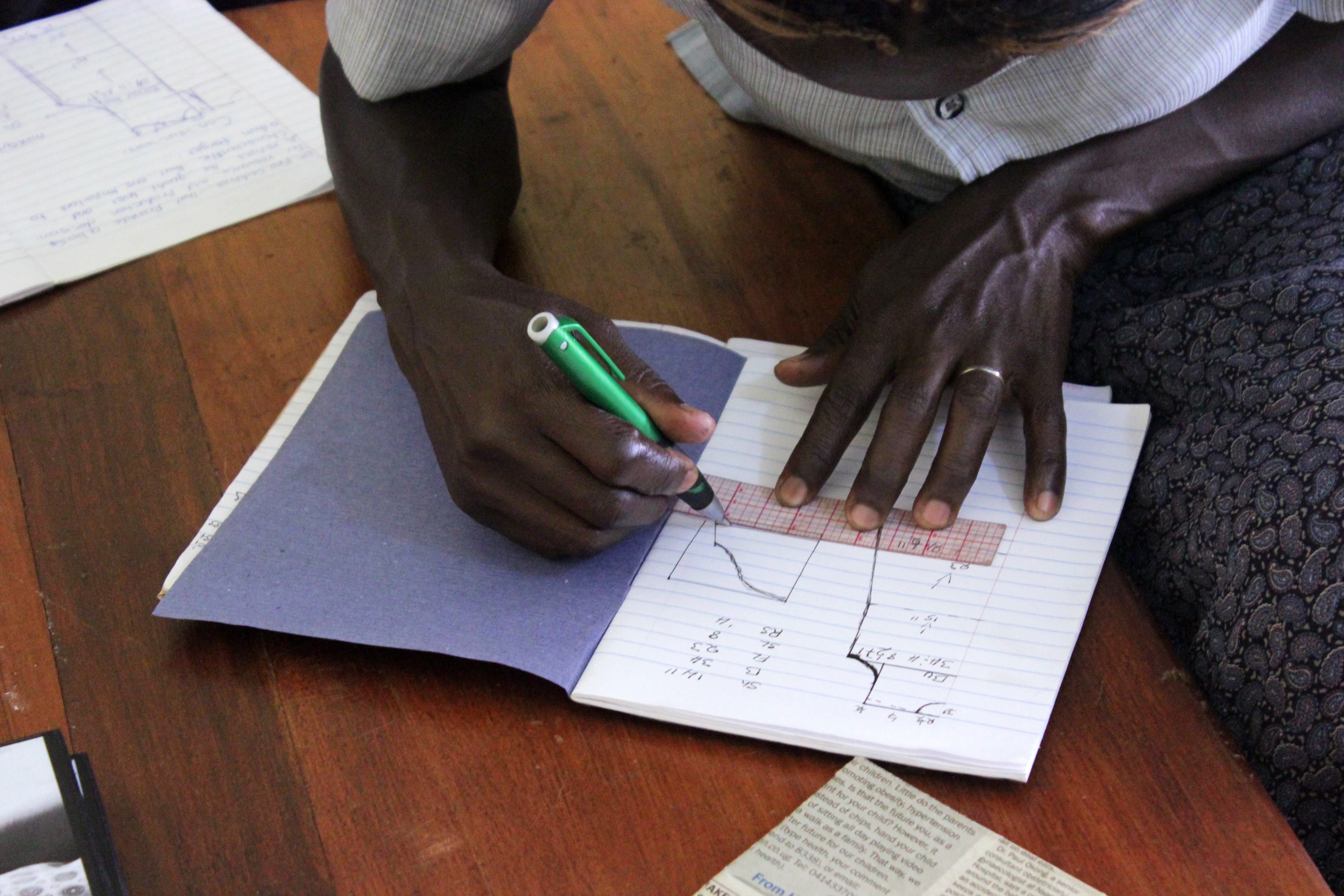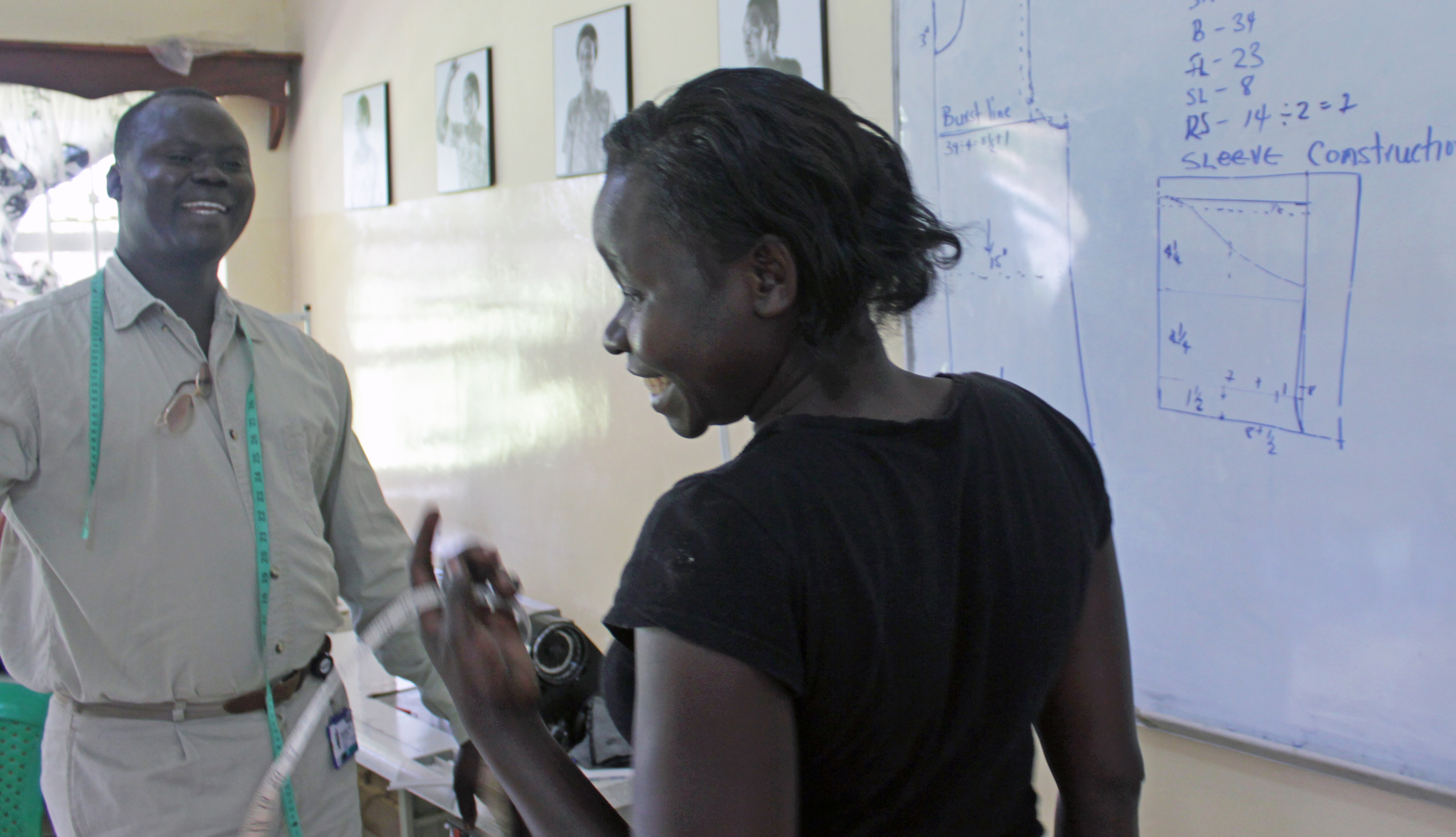As Richard Nyeko stood at the front of the room holding a large swath of purple fabric, he used the measuring tape draped around his neck to demonstrate the width of various types of folds. Even though the sewing machines were quiet and the quality control table stood empty for a time, the ladies of Mend were busy as ever, attentively scribbling in their notebooks on the first day of a special tailoring training to expand the ladies’ tailoring skills.
Richard, Mend’s production officer, led the women in a 5-day training focused on both the theory and practice of tailoring. He developed the curriculum himself, which included pattern drafting, product sourcing, developing standards for their products, measuring and production.
“We want [the seamstresses] to fit with those who are already in the market and to make good clothing so when they go there they can join easily and compete with them,” Richard said, about the purpose of the training.
Since the women missed many opportunities for educational and professional development because of Joseph Kony’s LRA conflict in northern Uganda, Mend aims to strengthen their skills as seamstresses and enhance their economic viability.
“You find that most [of the seamstresses] only got basic knowledge on tailoring. They can call themselves tailors but besides what they learn at Mend, they really didn’t have good experience or knowledge,” Evelyn Lapat, Mend’s social worker, said.
Before they became seamstresses at Mend, the women received tailoring training during their rehabilitation processes following the LRA conflict, but most received only an introduction.
“Learning how to measure and cut is important for me as I run my business making clothes. I found the training was very important because I had a weakness in cutting. I had been taking the cloth to someone else to cut, and I had to pay them to do it, but now I can do it myself. We have learned a lot, but would like to learn more. If possible, this kind of training should continue,” Ajok Betty, one of the seamstresses, said.”
Because each of the women are encouraged to develop and invest in their own small businesses, Richard developed a more detailed training focused on tailoring of garments for which a market already exists, such as school uniforms. The women also asked for training in making gomesi, a traditional dress in Uganda.
“We really want to see them empowered in their field. What we really want to see is for you to have customers and if possible have enough money that can supplement what Mend is giving you. That is why we want to do tailoring training,” Evelyn said.


Think people should hear about this?